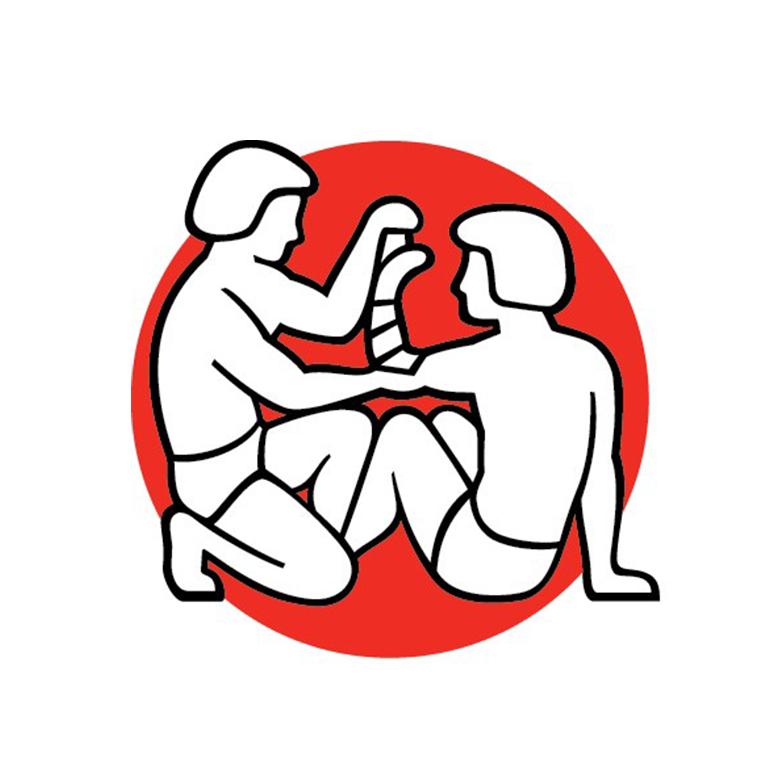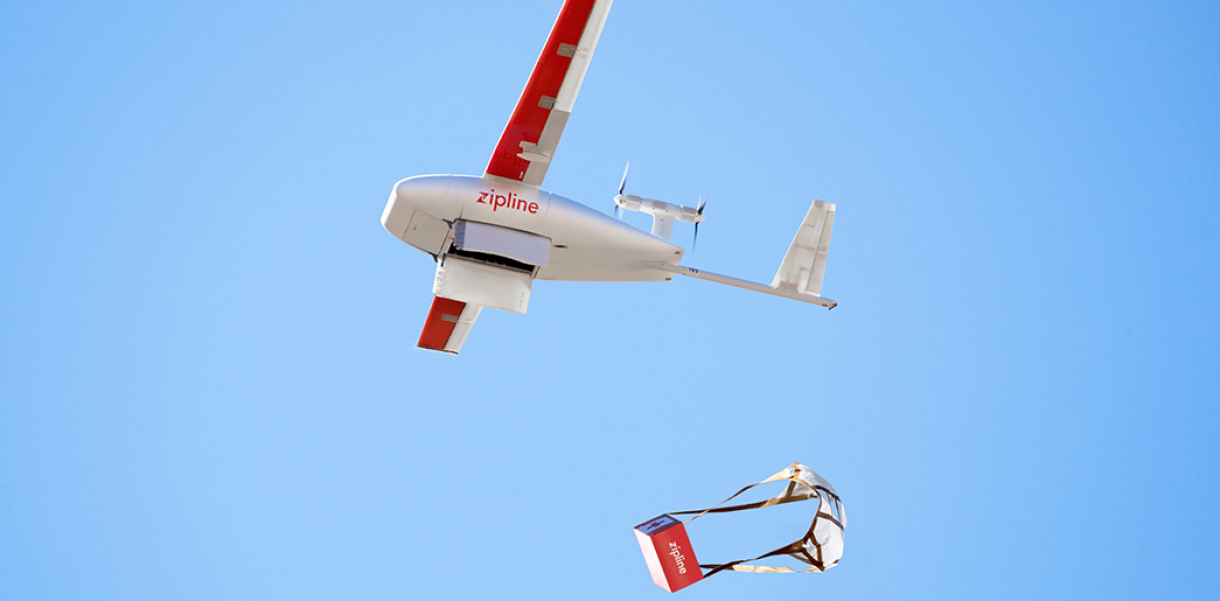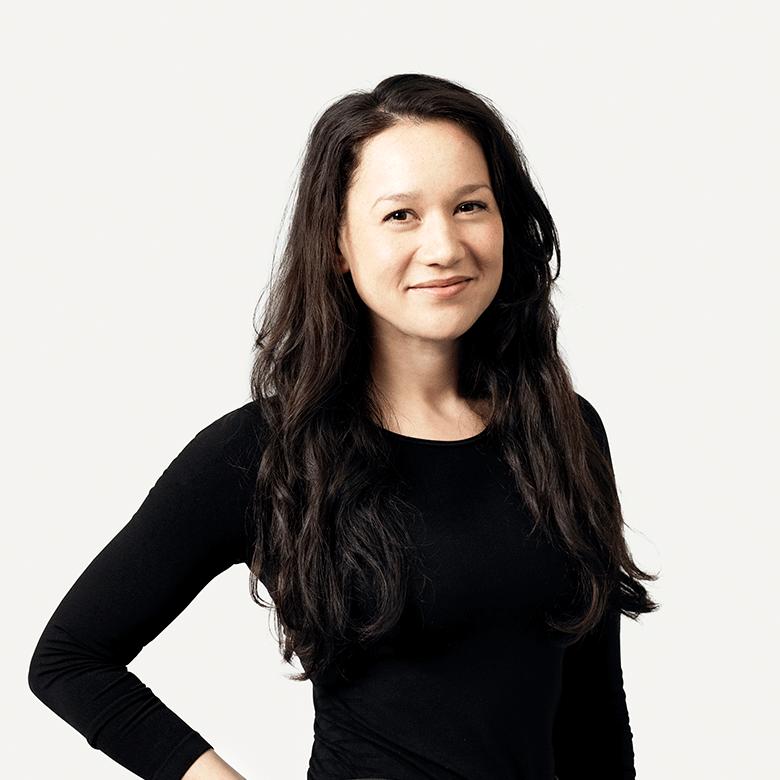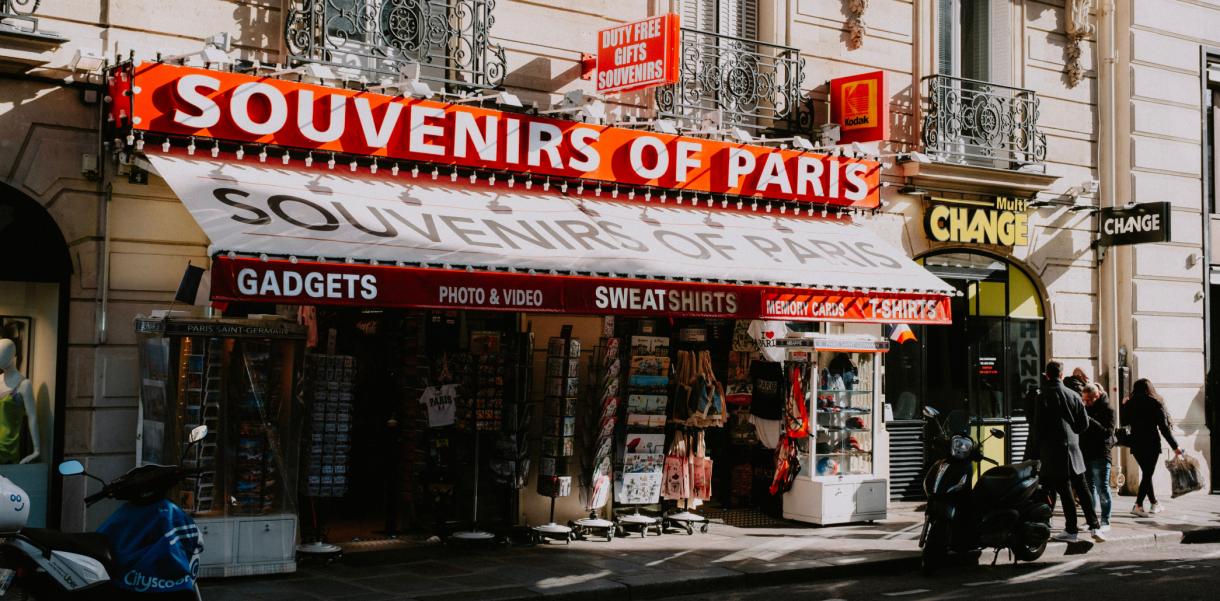
For decades, drones were an unwelcome presence, bringing fear, destruction and death. While in recent years they've become more of a positive influence in our lives, there's one initiative that's leagues ahead of the rest. These drones don't carry bombs or bullets, but hope.
Zipline is the world's first commercial drone fleet delivering critical medical supplies, like blood and vaccines, throughout remote Rwanda and Ghana. They're the saving grace where poor transport infrastructure, rough terrain and unforgiving weather conditions limit medical supply distribution.
Since winning an Index Award in 2017, Zipline has delivered more than 200,000 critical supplies, soared to new markets and helped save countless lives. Co-founder and Head of Product & Engineering, Keenan Wyrobek, says today's impact in Rwanda, delivered in close partnership with the Rwandan government, has been "transformational".
"We've been able to cut down blood waste to almost nothing, which means there's much more blood going to patients," explains Wyrobek. "We're talking from around 20-30% down to about 0.07% waste, which is unheard of anywhere in the world."
The service has also helped to significantly lower maternal and infant mortality, reduce avoidable deaths from trauma and emergencies, as well as increase vaccination rates.
"It's such an honour to be part of a deep and transformative impact on a health system," says Wyrobek as he reflects on the company's beginnings. A personal driver for Wyrobek was the plight of remote doctors who have all the passion and training but, have to care for hundreds of patients with scarce resources.
"We would meet these doctors who would tell us over their shoulder, 'I know exactly what to do right now with this patient, but I can't do it because I don't have what I need," he says. "These amazing results are due to the Rwandan government's efforts to try to solve every health system problem - a huge achievement for Rwanda."
Following Zipline's success in Rwanda, Ghana's first drone delivery centre opened in 2019 at Omenako, a village near Suhum in the Eastern Region. Now, the country's four distribution centres serve 2,000 clinics and benefit 12 million people across the country.
"Where you live should never decide whether you live."
And Zipline's success hasn't only drawn the attention of governments, but renowned activists as well—namely, U2 frontman Bono, Paul Hewson, who joined Zipline's board last year.
"Bono has a lot of experience firsthand with the challenges of trying to execute a public health system intervention," explains Wyrobek. "When you think about public health, there hasn't been a lot of innovation there, and I think that resonated with him where he's been frustrated in the past by logistical challenges. "He saw us as a company just rolling up our sleeves and solving it."
Last December, Bono joined the Zipline team in the Philippines for their partnership launch with The Philippine Red Cross. The project plans to make on-demand delivery of over 150 critical life-saving medical products across the country.
"I saw up close how it was not to get access to life-saving antiretroviral drugs; I felt that ache, felt that space between the need and supply of that need," said Bono at the launch event in Manila. "Where you live should never decide whether you live."
Zipline plans to establish three distribution centres in the Philippines with the first planned in the Visayas region for launch in 2020, and with potential expansion to eastern Visayas and Mindanao.
"Our North Star mission is to get everybody on Earth instant access to vital medical supplies."
While COVID-19 has posed several challenges for Zipline, the pandemic has firmly highlighted the company's critical importance to healthcare systems. Most recently, Zipline partnered with Novant Health, a non-profit healthcare provider, and California-based UAV delivery startup to service frontline healthcare workers in the US. Ziplines drones are now distributing personal protective gear and medical equipment to staff who are treating coronavirus patients in North Carolina.
This gained the approval of the US Federal Aviation Administration and North Carolina's Department of Transportation. However, according to Wyrobek, there's still a long way to go before they're fully established in the US—a long-term goal. "The US has a very conservative and complex regulatory process, so that's been an adventure," he explains. "But to have that first step now behind us is huge."
This is just first step for Zipline's plans to tackle COVID-19, as they've now been approached by several governments and NGOs to help distribute the highly anticipated coronavirus vaccine, says Wyrobek.
"When it comes to running a tight vaccine campaign, you need flexibility," he says. "And you need to be able to [distribute] it in waves very quickly so that so you're using your vaccines efficiently. "Our North Star mission is to get everybody on Earth instant access to vital medical supplies, and we won't stop until we do that."
-
The Impact Story series features past Index Award alumni journeys and is proudly sponsored by Laerdal Global Health, winners of Index Award 2013 for The Natalie Collection.





